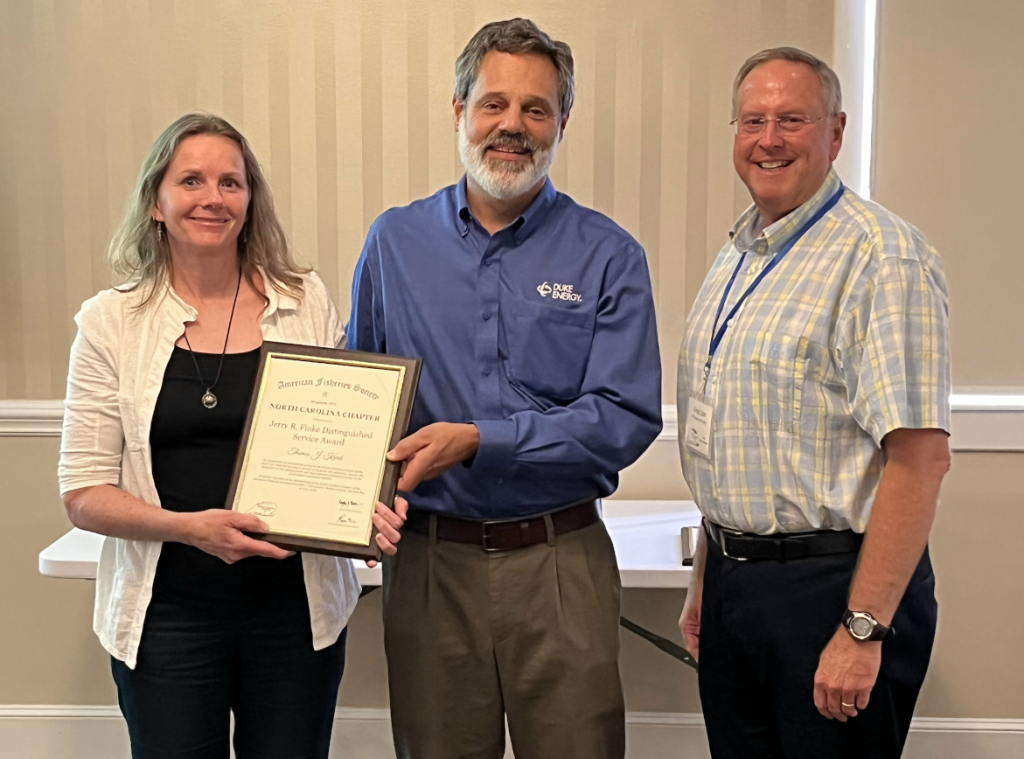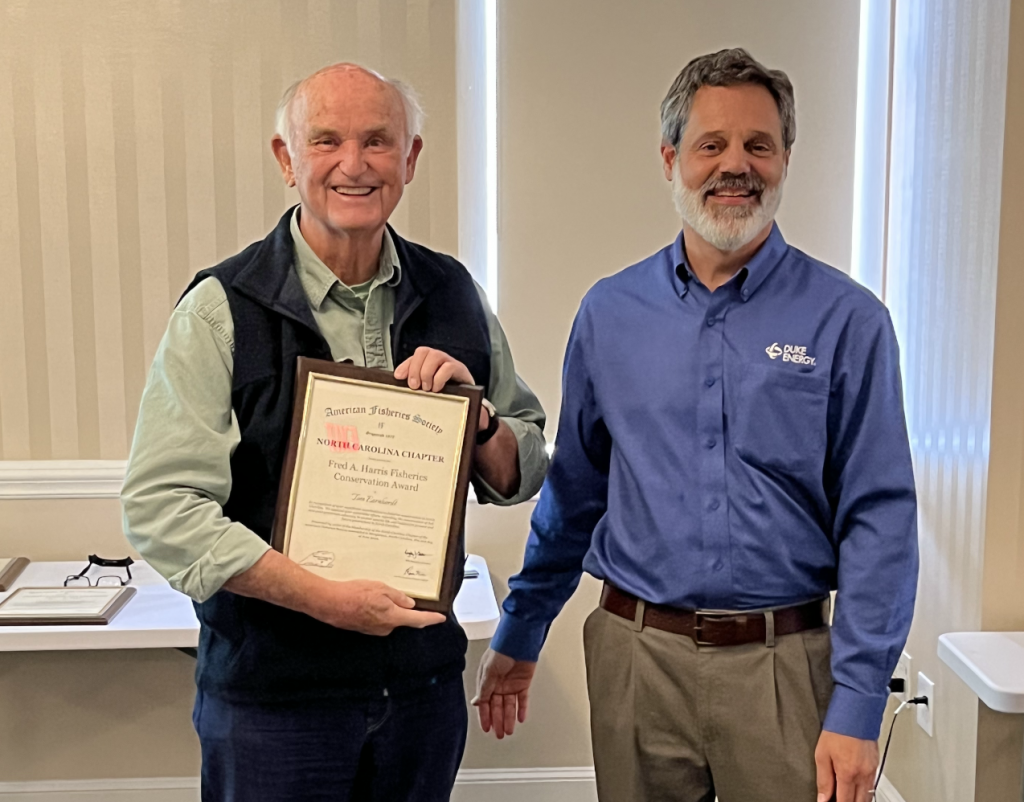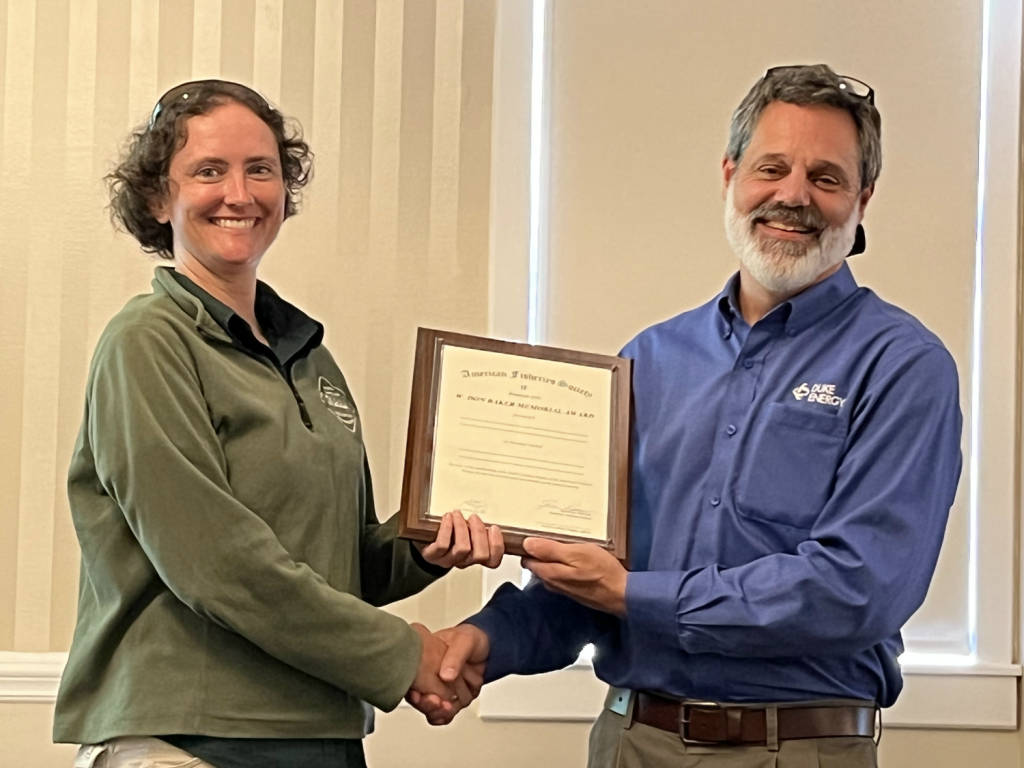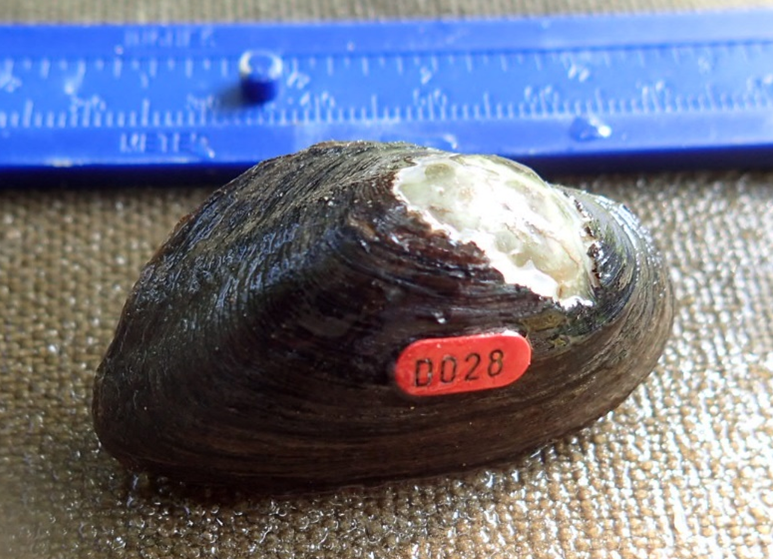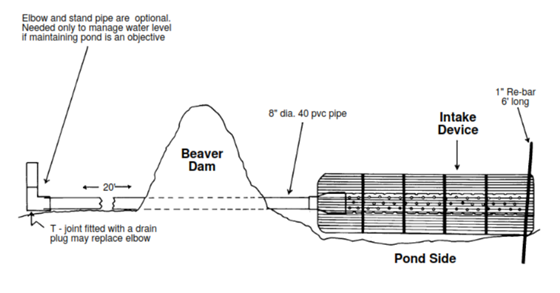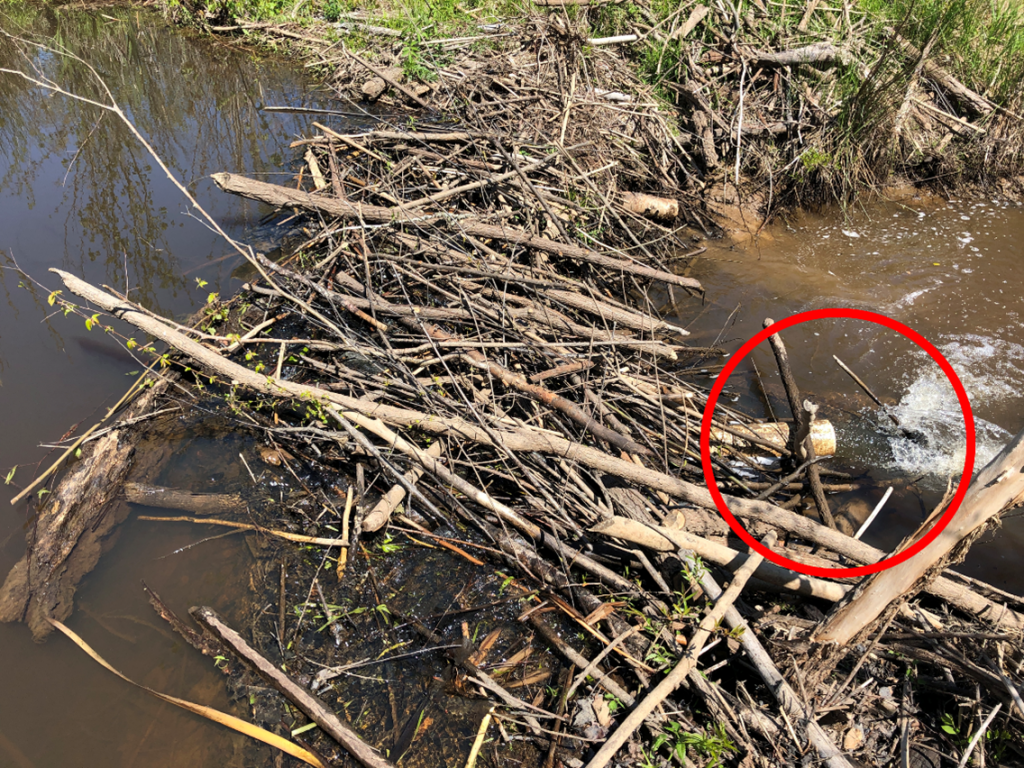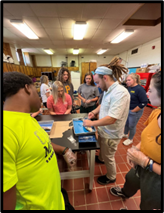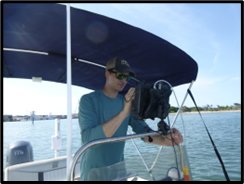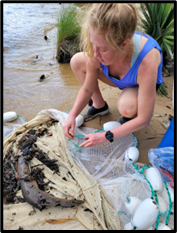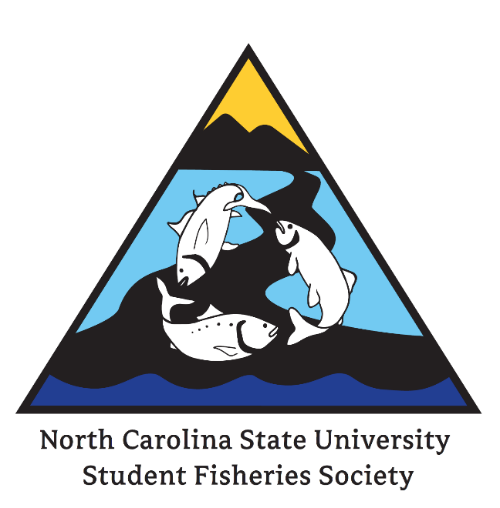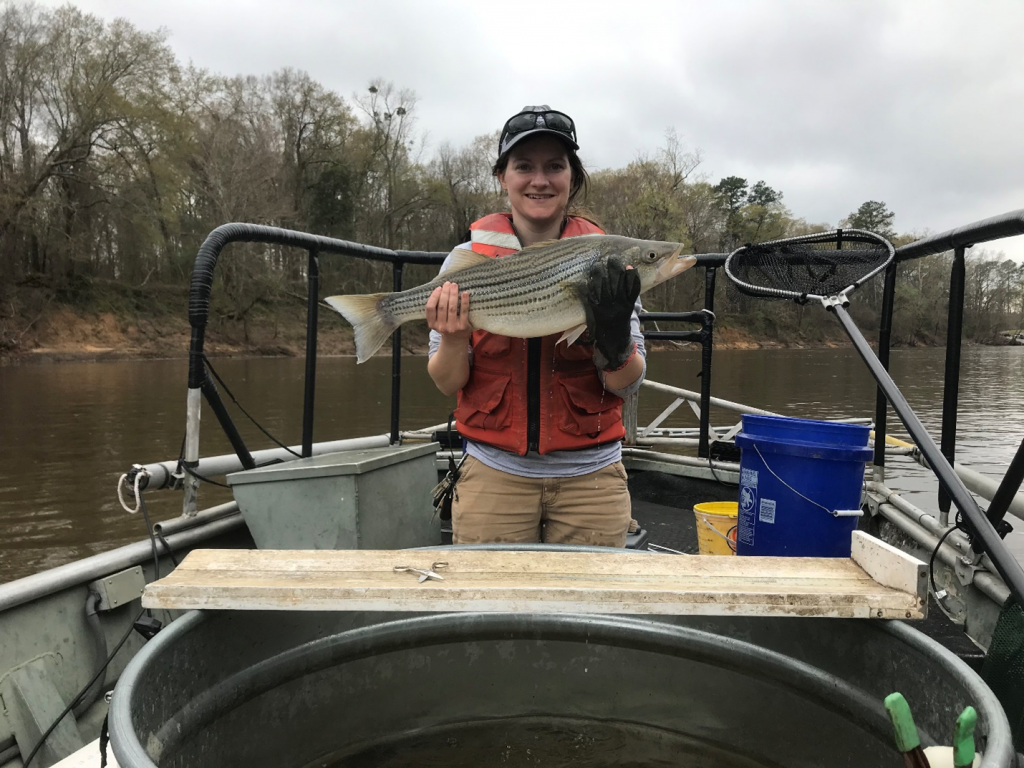Summer 2022 Newsletter

Quick Content Links
- President’s Message
- Treasurer’s Report and Meeting Summary
- Mitigating the Impacts of Beaver Recolonization in Dwarf Wedgemussel Critical Habitat
- Updates from the ECU Student Subunit
- NC State University Student Fisheries Society
- Spotlight on Students and Young Professionals
- News from NCWRC
- Good Work! – Recent Publications by NCAFS Members
- Stories of Interest
- Call to Action!
- Valuable Links
President’s Message
After more than two years, we finally were able to gather for a spirited NCAFS meeting in Morganton in June. Despite it being in the thick of field season, 83 of us came together to see 28 presentations covering a range of topics and taxonomic groups—showcasing the hard work, innovation, and creativity of our community. We have become a chapter of diverse interests, from fisheries management to crayfish population dynamics to habitat restoration. We inspire each other to think more critically, to use new methods to survey and analyze information, and to make a bigger positive impact on both the natural world and the human world.
Speaking of which, we raised $1,300 at our raffle and donated the full amount to the Southern Division of the American Fisheries Society (SDAFS) Committee for Diversity, Equity, and Inclusion to use for a scholarship program that sends individuals from underrepresented communities to SDAFS meetings. Ashley Berniche came from the AFS office to talk about the AFS Hutton Scholars Program, which matches high school students with professional mentors to give them early experience in the aquatic sciences. I challenge us all to consider being mentors for this program—it’s a great way to bring young people into our field, especially economically disadvantaged folks. See details here: https://hutton.fisheries.org/
A big 4th of July fireworks-worthy shout out goes to Ryan Heise, our Past President, and Ben Ricks, our past-Past President, for their leadership and hard work during Covid-19 times. And welcome to our new President-Elect, Kelsey Roberts.
Happy Independence Day everyone,
Andrea
Submitted by Andrea Leslie, NCAFS President
Treasurer’s Report and Meeting Summary
Balances as of May 24, 2022
NCAFS Checking: $17,581.15
NCAFS PayPal: $925.83
RRCC Savings: $7,124.51
General Fund: $70,061.35
Ichthus Fund: $30,839.33
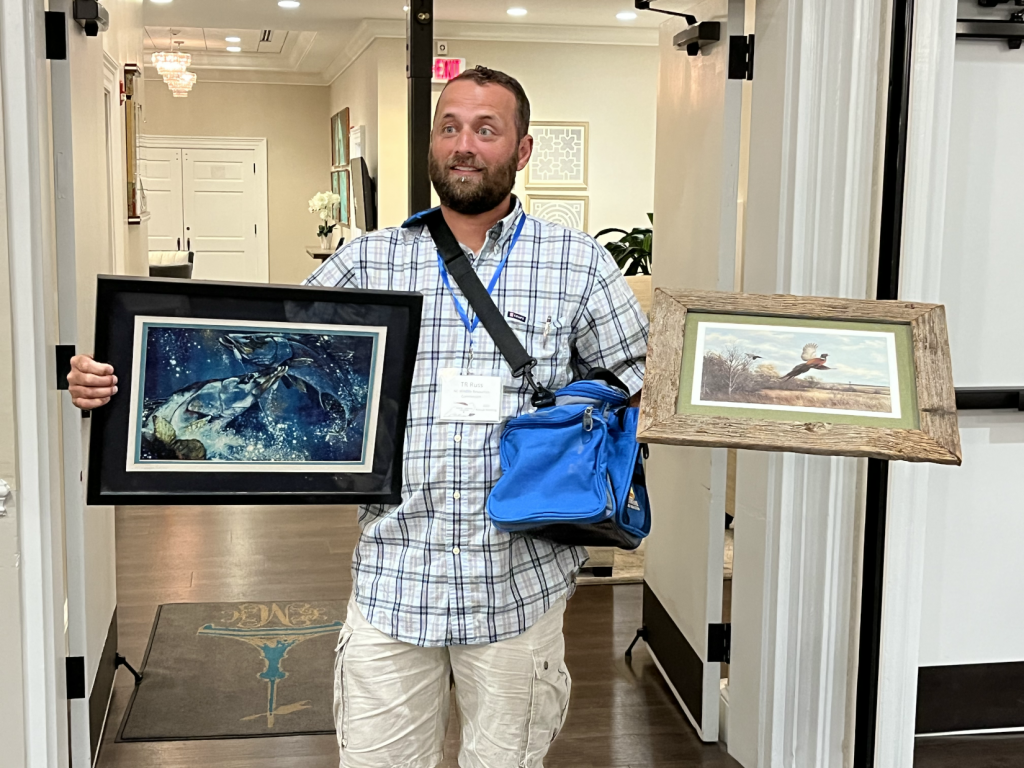
TR displaying his haul from the raffle. The sample size is too low to determine if TR is the new Jim Rice.
The 2022 NCAFS Chapter Meeting was held June 1-2 in Morganton. The meeting was attended by 83 members who viewed and/or contributed to 27 professional or student presentations and 1 poster presentation. The continuing education workshop, Using Social Science to Foster Sound Management/Conservation, was hosted by NCWRC and attended by 37 participants.
A raffle conducted during the June 1 social raised $1,300, with proceeds donated to the SDAFS Committee for Diversity, Equity, and Inclusion.
The Awards Committee reported the 2021 NCAFS student travel award recipients were Jeff Plumlee (UNC-Chapel Hill) and Ryan Tharp (NCSU). Each received a cash award of $400 to attend the 151st Annual Meeting of the American Fisheries Society in Baltimore, Maryland. At the 2022 NCAFS business meeting, Chapter Membership voted (unanimously) to rename this award the “Thomas J. Kwak Student Travel Award.”
The Distinguished Service Award recognizes Chapter members who have distinguished themselves by service to the Chapter, the American Fisheries Society, or the fisheries profession. In 2015, a recommendation was made to the Awards Committee and unanimously passed by Chapter EXCOM and Membership to rename the
Award to the Jerry R. Finke Distinguished Service Award. Jerry, who passed away due to cancer during 2013, epitomized selfless dedicated service to the NC AFS Chapter and the Southern Division of AFS. The Chapter will remain forever indebted for his volunteer service. The 2022 Jerry R. Finke Distinguished Service Award was presented posthumously to Dr. Thomas J. Kwak for his dedicated service to the Chapter, the AFS Southern Division, and AFS. Ms. Danielle Pender, Tom’s spouse was present at the Business Meeting Awards Ceremony and accepted the award on Tom’s behalf.
The Fred A. Harris Fisheries Conservation Award recognizes non-Chapter members who have distinguished themselves by service or commitment to the Chapter or to the fisheries resources of North Carolina. The 2022 award was presented to Mr. Tom Earnhardt. Tom is an environmental lawyer, university professor, journalist, writer, photographer, and naturalist who has dedicated his life and career to environmental protection, conservation, and educating others about North Carolina’s natural resources. Tom accepted his award during the Business Meeting Awards Ceremony.
The 2022 Richard L. Noble Best Student Paper Award was presented to Joseph K. McIver II for the paper entitled “Assessing the Toxicity of Sea Salt to Freshwater Mussels: Implications for Sea Level Rise in Coastal Rivers.” Joseph will receive a monetary award of $600 from the Chapter’s Ichthus fund for travel to present the paper at an upcoming scientific conference of his choosing. The 2022 W. Don Baker Memorial Best Professional Paper Award was presented to Brena K. Jones for the paper entitled “Cape Fear Shiner Surveys and Species Status Assessment (SSA).” Both Joseph and Brena accepted their awards during the Business Meeting Awards Ceremony.
Submitted by Casey Joubert and Greg Cope
Mitigating the Impacts of Beaver Recolonization in Dwarf Wedgemussel Critical Habitat
The Dwarf Wedgemussel, Alasmidonta heterodon, is a federally endangered species of freshwater mussel whose range historically extended along the Atlantic Slope drainage from the Petitcodiac River in New Brunswick, Canada to the Neuse River basin in North Carolina. However, this range has contracted from its historical extent and now only a handful of stable populations remain. In the Southeastern US, the Tar River basin is home to one of the remaining populations of the species. Unfortunately, habitat suitability there is being threatened by the recolonization of the American Beaver, Castor canadensis, in systems containing these few remaining populations.
Beavers are known to conduct extensive habitat alterations specifically slowing the flow of surface water. This dam-building activity reduces dissolved oxygen, increases stream sedimentation, and limits fish access; all factors that decrease habitat suitability for freshwater mussel species. One system that has been particularly impacted by beaver recolonization is Maple Branch, a tributary to Shocco Creek in the upper Tar River basin.
Maple Branch historically held a robust population of Dwarf Wedgemussel, but observations of the species have dwindled in recent years largely due to beaver activity in the reach. To mitigate the negative impacts of beaver activity, we have begun to explore the use of Clemson Pond Levelers. These devices are installed through the wall of the dam and allow water to pass through the dam, passively restoring flow to the system.
To measure the effectiveness of the flow-through devices on mussel habitat quality, we have taken measurements of physical habitat and water quality including stream flow, wetted width, impoundment depth, substrate compactness, temperature, dissolved oxygen, conductivity, nitrate, nitrite, manganese, calcium carbonate and pH. These measurements were taken monthly one year prior to pond leveler installation and will continue for one year after installation to detect changes in habitat quality throughout the reach. Results will inform continued use of Clemson Pond Levelers in Maple Branch and in other mussel habitats impacted by Beaver activity. Contact Mike Walter for more information on this ongoing project.
Submitted by Mike Walter, NCWRC
Updates from the ECU Student Subunit
Shad in the Classroom
Former ECU-AFS President Reece Warfel and current ECU-AFS President Chase Spicer helped out with Shad in the Classroom this past spring. ECU-AFS gathered Hickory Shad, Alosa mediocris, from the Roanoke River and taught students at Perquimans High School in Hertford, NC about fish anatomy through dissections. Students were also taught the importance of clean water for fishes, the role that anadromous fish played in the history of Eastern North Carolina, and the different species that frequent their local waters. The event was a great success. Students were very excited and engaged throughout the day while participating in some hands-on fisheries science! Reece and Chase both said it was a very rewarding experience working with the students! Perquimans High School also participated in Shad in the Classroom Hatchery Program where students, with help from the North Carolina Museum of Natural Sciences, construct a tank, monitor water quality, and raise and release tiny American Shad A. sapidissima fry in partnership with fisheries biologists from the NC Wildlife Resources Commission and the U.S. Fish and Wildlife Service.
If you are interested in participating or helping out with Shad in the Classroom next spring, applications open this Fall! Contact Danielle Pender at [email protected] or visit the North Carolina Museum of Natural Science website at: https://naturalsciences.org/learn/learning-resources/shad-in-the-classroom.
ECU Pirates in the Field
Andrew McMains
Ph.D. Student, Morley Lab
My current project focuses on the impacts of dredging on how fish utilize Beaufort Inlet in NC and the adjacent estuarine channels. I am using an acoustic imaging sonar to quantify the abundance and define guilds of fish found in the inlet area before, during, and after dredging occurs. During dredging, I will also conduct acoustic imaging transects to examine the size and extent of the dredge plume and the fine-scale behavioral impacts of the sediment plume on fish.
Elise Ann Easterling
M.S. Student, Asch Lab
My thesis research encompasses examining the contribution of mesopelagic fishes to the biological pump in the North Pacific Subtropical Gyre. The biological pump is a term used to refer to the biological processes that transport carbon from the atmosphere to the ocean interior. Mesopelagic fishes are significant in carbon transport due to their migratory pattern of feeding at the ocean surface and expelling organic carbon as fecal pellets as these fishes migrate up to 1,000 meters deep in the ocean. The mesopelagic fish samples I am using were obtained aboard a research cruise from station ALOHA near Oahu, Hawaii. Using stable isotope analysis, I am quantifying how much carbon these fishes potentially transport by measuring carbon in the gut contents. Some mesopelagic fishes are too small to extract the gut contents from. Therefore, I am building an allometric relationship using local fishes in North Carolina to help estimate carbon in the gut contents based on fish biomass. Over the summer, I have been utilizing beach seines and minnow traps to obtain a variety of juvenile fish species of different lengths and weights to build the allometric relationship. I am targeting fishes that resemble the sizes and shapes similar to the mesopelagic fish species, such as Atlantic silversides, mullet, and bay anchovies. My fieldwork is largely in salt marsh and estuarine environments, where juvenile fish species tend to reside.
Awards and Accolades
Graduating ECU-AFS members
Chris Moore, Ph.D. Biology
Reece Warfel, M.S. Biology
Quentin Nichols, M.S. Biology
Beth Davis, B.S. Biology
Awards
Andrew McMains – 2022 Coastal Research Fellowship
Andre McMains – Acceptance into Coastal Community Environmental Data Scholars NRT
Chase Spicer – 2022 Evelyn and Joseph Boyette Graduate Fellowship
Maddie Johnson – 2022 Eileen Setzler-Hamilton Scholarship
Naomi Jainarine – Acceptance into Coastal Community Environmental Data Scholars NRT
Naomi Jainarine – 35th Annual Tidewater AFS Meeting 2nd Place Poster
Quentin Nichols – 34th Annual Tidewater AFS Meeting 2nd Place Poster
Quentin Nichols – Martha Jones Scholarship and NCWF Scholarship
Submitted by Chase Spicer, ECU-AFS student subunit President
NC State University Student Fisheries Society
The Student Fisheries Society (SFS) hosted our annual stream clean-up of Rocky Branch in partnership with Service Raleigh in April 2022. It was a large success with 19 students participating. Subunit members also volunteered in spring 2022 with the Shad in the Classroom program, a partnership between the North Carolina Museum of Natural Sciences and local schools in the Triangle.
Looking ahead, SFS is planning a beach clean-up in Atlantic Beach, NC in fall 2022. We are also working to increase undergraduate involvement in the subunit as it is currently graduate student dominated.
Submitted by Joseph McIver, NCSU SFS
Spotlight on Students and Young Professionals
April Boggs was hired as District 4 Fisheries Biologist I with the North Carolina Wildlife Resources Commission (NCWRC) in March 2020. She enjoyed about two weeks of orientation and normal job duties before pandemic-imposed restrictions upended her anticipated spring of fish sampling. As the pandemic waxed and waned (and waxed and waned several times over), easing restrictions found April working with a plethora of anadromous species, black bass, catfish, and leading efforts to conduct a creel survey of the Lumber River. April attended her first NCAFS Chapter meeting in 2022 and presented her work investigating the impact of low head dams on fish communities in the Lower Little River (Cape Fear River basin), which by all accounts was of great interest and well-executed.
April grew up in the woods of Lee and Moore counties in central North Carolina and harbored a deep interest in the critters she found. That early interest in wildlife led her to attend NC State University for both her BS and MS in Fisheries, Wildlife, and Conservation Biology. Advised by Dr. Chris Moorman, her M.S. thesis (Dec 2018) investigated relationships between the volume of residual logging debris and mouse and invertebrate populations in the Appalachian Mountains. Following grad school, she conducted habitat management and prescribed burns for The Nature Conservancy with the Sandhills Burn Crew (NC) and as a conservation technician in the Allegheny Highlands (VA). She joined NCWRC as a conservation technician in October 2019 before trading her drip torch for an electrofishing boat.
April resides in Richmond County and enjoys hunting, fishing, kayaking, reading, hiking, and doting upon her pet dogs. However, most of her time might be devoted to keeping a micro-farm of chickens, ducks, and assorted other critters. Feel free to drop her a line if you’re interested in freshwater fisheries management in southeastern NC.
Submitted by Kyle Rachels, NCWRC
News from NCWRC
The Inland Fisheries Division of the NC Wildlife Resources Commission has seen quite a few personnel changes over the last 10 months. Below is a partial synopsis of staff in their new positions to help folks outside the agency figure out who’s who.
- Lawrence Dorsey – Piedmont Region Supervisor
- Todd Ewing – Retired (now with Southeast Aquatic Resources Partnership)
- Rachael Hoch – Assistant Chief (Aquatic Wildlife Diversity)
- Seth Mycko – District 5 Fisheries Biologist
- Corey Oakley – Assistant Chief (Fisheries Management)
- Ben Ricks – Coastal Region Supervisor
- Kelsey Roberts – Piedmont Research Coordinator
- Nick Shaver – Assistant District 2 Fisheries Biologist
- Chad Thomas – Retired (now with NC Marine & Estuary Foundation)
- TD VanMiddlesworth – District 2 Fisheries Biologist
- Mike Walter – Eastern Region Aquatic Wildlife Diversity Biologist
Staff contact information is also available at ncwildilife.org for the fisheries management program. These staff are a good first contact if you have questions regarding any fish species within their district.
Submitted by NCAFS Newsletter Review Team
Good Work! – Recent Publications by NCAFS Members
Ferreira-Rodriguez, N., M. Gangloff, G. Shafer, and C. L. Atkinson. Drivers of ecosystem vulnerability to Corbicula invasions in southeastern North America.
Lynch, A. J., B. J. E. Myers, J. P. Wong, C. Chu, R. W. Tingley III, J. A. Falke, T. J. Kwak, C. P. Paukert, and T. J. Krabbenhoft. Reducing uncertainty in climate change responses of inland fishes: A decision-path approach.
Tracy, B. H. What’s in a fish species name and when to change it?
Submitted by the NCAFS Newsletter Review Team
Stories of Interest
Immediately alarmed: largest lake in danger
A remarkably alarmist and misleading title
A different kind of trout
“Trash Trouts” collect litter in WNC streams
ePropulsion sponsors NC bass tournament
At least one NC bass club uses only electric motors
Tipping Point: Fisheries on the Brink
A delightful PBS NewsHour special
Copi: Asian Carp Rebrand
Goal is to increase consumer demand at markets and restaurants
How private foreign equity hooked New England’s fishing industry
Fishermen priced out of NOAA individual transferable quotas
Ugly fish need love too
Research suggests “prettier” fish are less likely to be listed as threatened by IUCN
The fish are vanishing anyway
A critical look at salmon hatcheries in the Pacific Northwest
Warming water causing problems for New Zealand salmon production
Almost half of company’s fish have died in heat waves this year
Great Britain’s fish and chips shops in danger
Inflation, war, and geopolitics impacting the dinner plate
Submitted by the NCAFS Newsletter Review Team
Call to Action!
If you want to contribute, have a story idea or would like us to include something in next quarter’s newsletter, email Kyle Rachels at [email protected] or give him a call at 252-548-4938.
Also, if you want to become more involved with one of the many great NCAFS committees then please check this link for information about each one, contacts, etc., https://nc.fisheries.org/who-we-are/committees/
 Valuable Links
Valuable Links
The American Fisheries Society Home Page offers a wealth of links to assist you in your fishy endeavors. This and archived NCAFS newsletters, along with links, chapter information, and upcoming meetings, can be found here on our own website.

